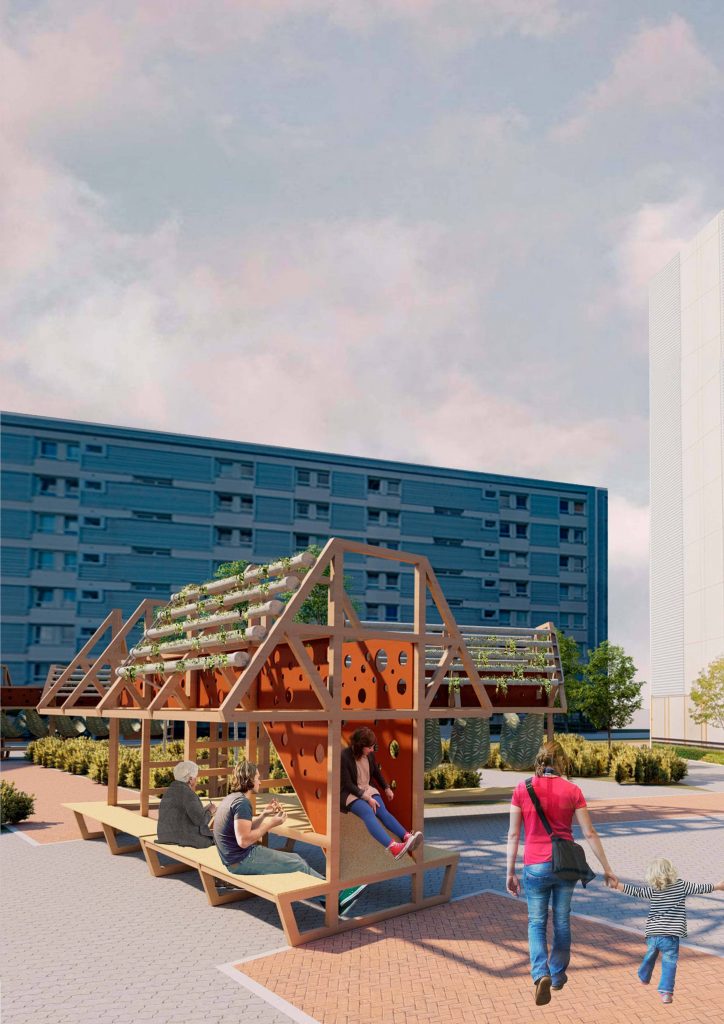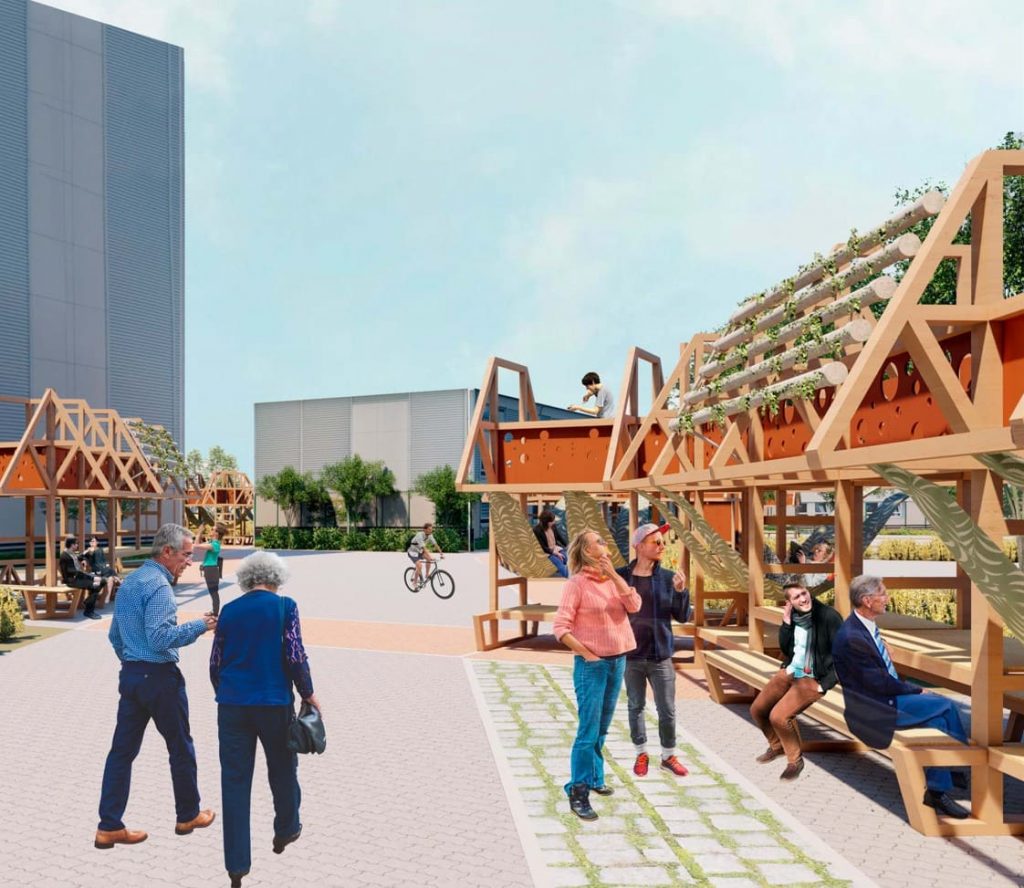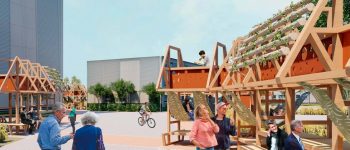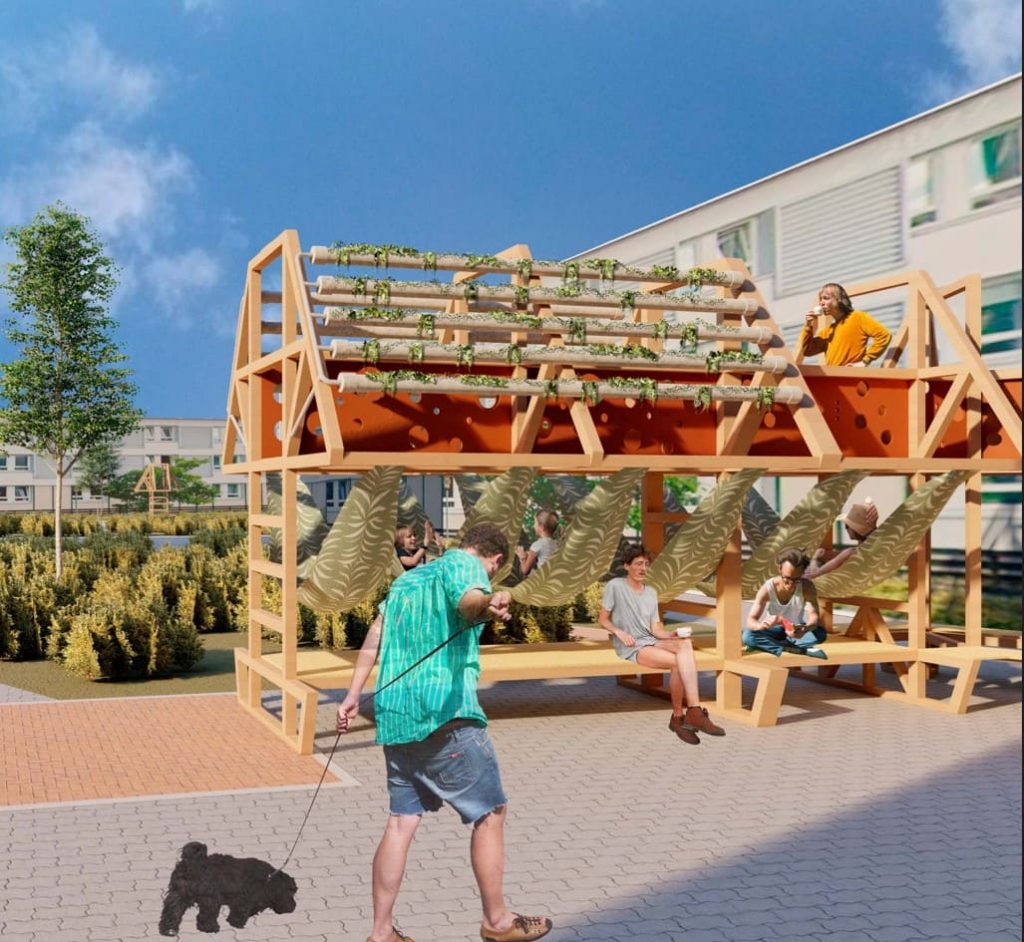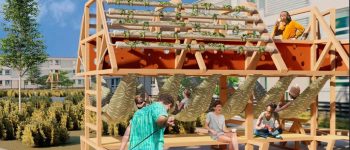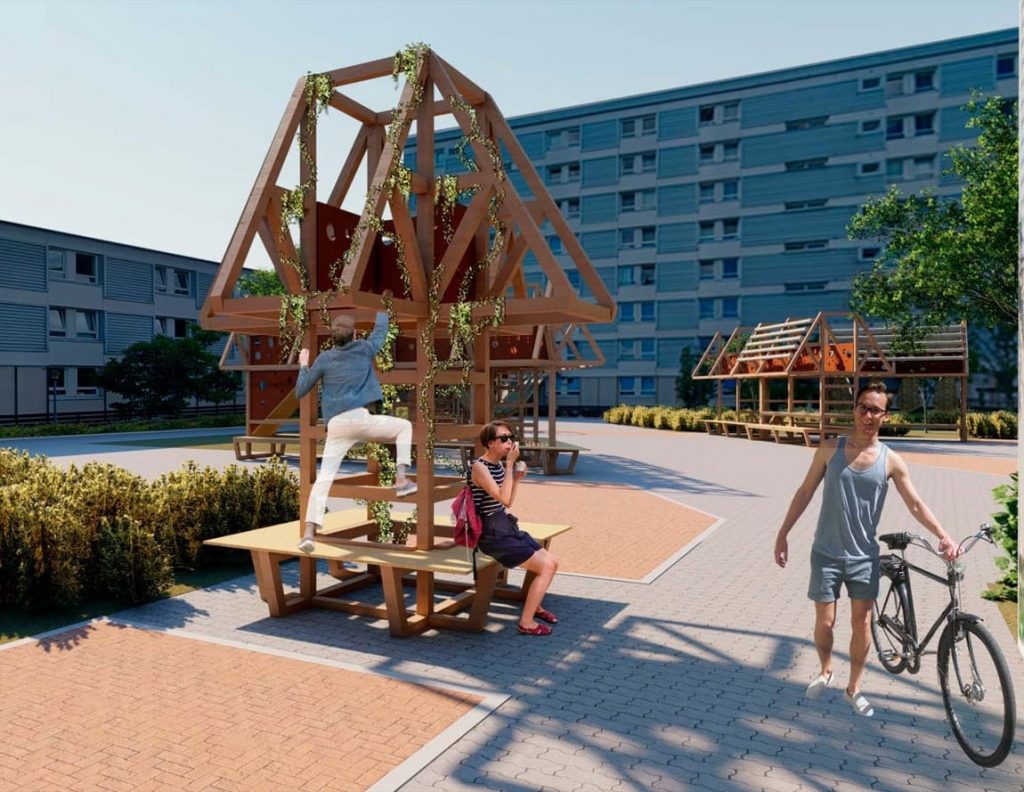The project focuses on the design of modular urban furniture, specifically wooden scaffold structures, that house different activities and feature hydroponic gardens on the top. To improve efficiency in agricultural production, the use of solar water pumps is incorporated.
Each module presents variations according to its use, such as resting in hammocks, a place to eat and read outdoors, and a space for gathering and waiting. The upper part serves as a playground for children, while part of the furniture’s coverage incorporates hydroponic gardens with a certain degree of inclination, with the purpose of making the most of urban furniture. Additionally, the furniture incorporates solar water pumps for hydroponics in order to reduce energy consumption and make the system more sustainable.
The modular furniture is strategically located in neighborhoods to form a circuit that allows for interaction among neighbors and the cultivation of food in vertical hydroponic gardens for personal consumption or to share with the local community.
The agricultural activity not only supports families in a socially and environmentally sustainable environment but also helps young people and adults to maintain an active participation in the community, promoting their identity and fostering a sense of social and environmental responsibility in food production. Additionally, the use of solar water pumps contributes to reducing environmental impact and making the project a more sustainable and efficient initiative in food production.
Another significant problem today is the scarcity of water worldwide, which affects both people and food production. The agricultural sector is one of the main consumers of water, putting food security and water sustainability at risk. It is necessary to implement more sustainable agricultural practices, such as efficient irrigation techniques and drought-resistant crops, to ensure access to water and food production.
Demographic changes and urbanization also have negative consequences. The increasing number of single-person households across generations can have a negative impact on people's mental health, as they feel isolated and disconnected from society. Additionally, urban areas experience growing segregation and social inequality, which can have a negative impact on social cohesion and people's well-being.
In summary, it is necessary to address these problems from a sustainable and inclusive perspective, promoting more sustainable practices and ensuring access to quality services for all people.
Likewise, the stakeholders are communities that are far from places where food products are sold.

